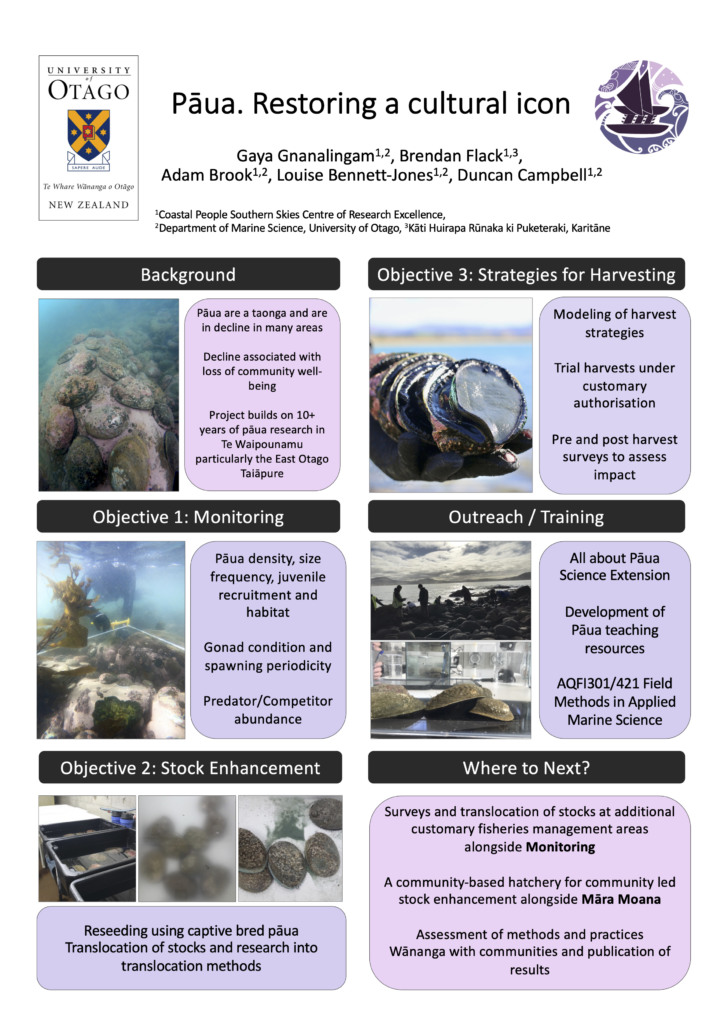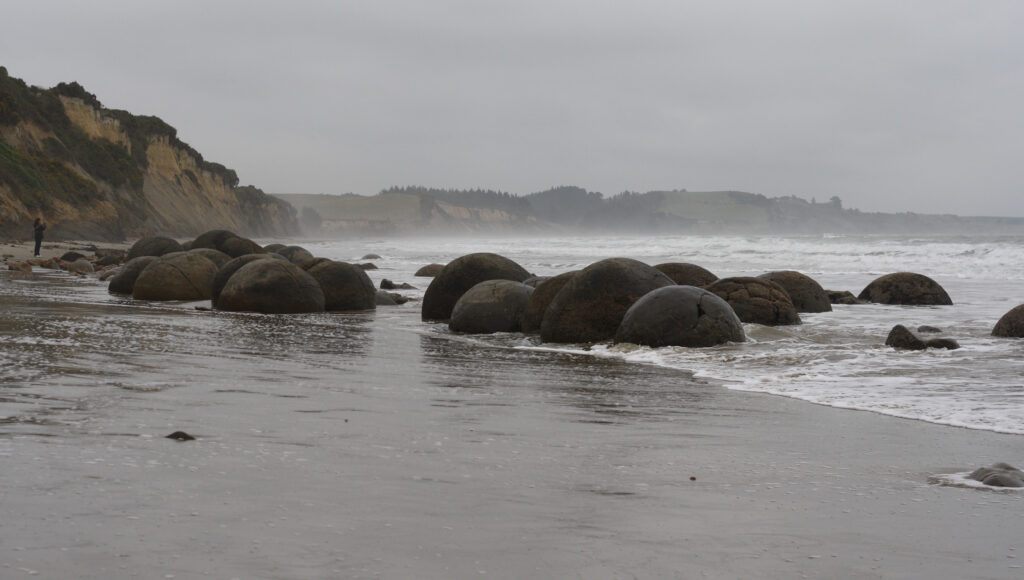Project Leader(s) Dr Gaya Gnanalingam (UoO)
Project Team Mr Brendan Flack, Mr Adam Brook, Miss Louise Bennett-Jones
Abalone are a prime example of a family of species (Haliotidae) subject to serial depletion as a result of fishing pressure worldwide. In Aotearoa New Zealand, pāua (blackfoot abalone, Haliotis iris) are no exception with a number of local populations in decline, and ocean acidification is likely to exacerbate these declines. Where it was once possible to ‘walk on pāua in low water’ tangata tiaki/kaitiaki now say it is impossible to harvest without being able to swim and dive. With stock declines and decreased access, particularly for elders, there comes associated losses to community well-being, cultural identity, and connection to the environment. Marine populations with healthy, mature stock structures are less vulnerable to environmental change as genetic variability within larger populations can translate into resilience to environmental stressors. Thus, restoration that can substantially increase the number and size of pāua on reefs increases the prospect of this taonga persisting into the future.


